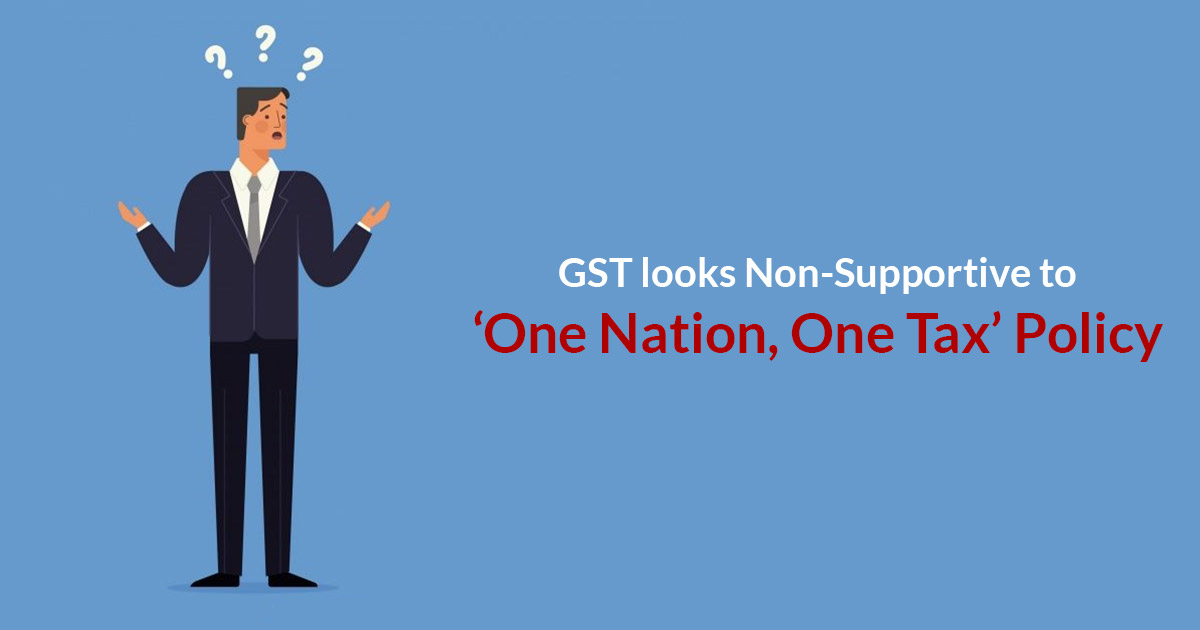GST seems becoming a Puzzle not just for the countrymen but for the GST Council and Government as well!
The GST was implemented with a bang of the slogan ‘One Nation, One tax’. The implementation of which was done with enthusiasm but not with proper planning which resulted in poor outcome and criticism. Now, the GST Council looks losing its grip over the whole scenario due to the continuous changes in GST law and several oppositions.
In the recent past, the Government gave a verdict of setting the threshold limit to ₹40 lakh. After the 32nd GST council meeting, looking at oppositions from some states, the GST Council has asked the States to decide whether they are okay with Rs 20 Lakh as the threshold limit of Rs 40 Lakh. This move is thought-provoking that whether the GST council is now not efficient enough to make decisions and get them implemented in the States.
It seems as if the results of the recent State elections, which stood against the Government, have loosened the Confidence of the Government. As evident from the several changes made in the GST constitutional rules.
Along with the changes, comes the implementation, and which is never easier when it is to be implemented PAN India.
It would be difficult for the Government to explain the different tax slabs in the GST rule implemented in the country. The introduction of a composition rate of tax at 6 per cent for services, tolled the tax slabs to a total of 9, viz. (0 per cent, 0.10 per cent, 0.25 per cent, 3 per cent, 5 per cent, 6 per cent, 12 per cent, 18 per cent, 28 per cent).
We find the difference between the composition tax rates for the services and other composition dealers. Fixing 5% as the standard tax rate for both Composition service men and other composition dealers would not had affected the Tax revenue significantly But keeping a 6% tax rate (divided equally between CGST and SGST ) for services alone in the tax slab is again questionable as it could be speculated that it would solely be upon the will of the GST council to alter the tax rates as per their will.
In GST Council’s another decision the Composition dealers had again been benefited as the GST Council increased the annual turnover limit for the preceding year, for availing Composition Scheme for Goods to ₹1.5 crore. But services were kept exempted from this benefit.
A one week time has been given to the special category States to decide about the comfortable Composition Limit in their States. Simultaneously, relief has been provided to the Composition scheme dealers by the simplification of the Compliance rules under composition scheme. Now, the dealer availing this Composition scheme, need to file just one annual return and the payment of taxes would be done on a quarterly basis. In addition, a simple declaration is required to be filed. To get exempted from registration and payment of GST for the suppliers of Goods, there would be two threshold limits- Rs 20 Lakh and Rs. 40 lakh. The threshold limit for the service providers would be Rs 20 Lakh and for Special category states, it would amount to Rs 10 Lakh.
The decision which has been taken by the Government to keep the Service providers out of the threshold exemption limit is still debatable.
Providing Free Software to the Small Taxpayers
Most of the recent decision has been taken by the Government as a result of the State elections results in which the public has shown the verdict and has rejected the BJP. Thus, it looks like, there are decisions being made keeping the vote bank at the centre of concern. One such surprising decision which came from the GST council was providing a free accounting and billing software to small taxpayers by GSTN. Despite this favour by the Government, the users of the software would be extra cautious while using the GSTN portal as they had the experience of the GST portal where they had faced issues.
Small Things Need to be Care of by the Council and Government
- Firstly, When the Council is making efforts to reduce compliance for the small taxpayers in almost every meeting conducted, the point to be questioned is that why the Small taxpayers should be provided with an accounting and billing software, as they just need to pay taxes on a quarterly basis and files returns annually on a composition basis. Thus, there is no requirement as of now, to provide such a facility to the Small taxpayers and would hardly be of any use.
- Secondly, the decision taken by the GST Council for Cess implementation in Kerala on various Goods supply and services is also under the question mark. The question arises that whether this decision is correct or not, as the whole country witnessed the Natural calamity through which Kerala has gone through in the recent past and a majority of people believe that cess implementation at such a time would not go in the favour of the Government, though levied for a shorter period of time. The Government’s thought behind this might have been based on Kerala SGST revenues.
Meanwhile, two GoMs have been decided to be constituted to bring out the fallouts of GST for the real estate sector. It seems as if the year is going to be challenging as well as action-packed as there is a lot of scopes in terms of decision making and in the rectification of all the mistakes which have been done till now to upgrade the taxation rule in India.











As long as there is a different rate of GST in the same category, the different rate in different states on same commodity, different rate of road tax, how can you call it “One Nation One Tax”?
correct